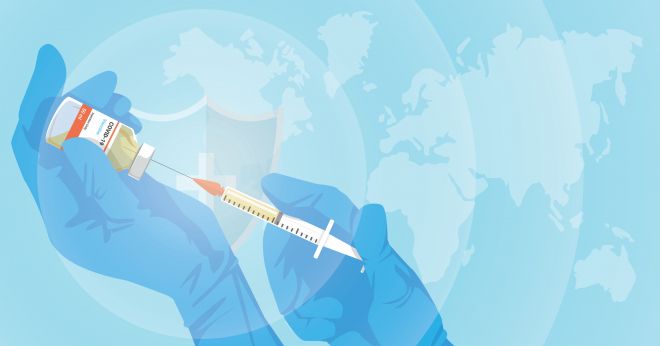COVID-19: You, the US, Cuba, and the World
Published on February, 49 2022
By Leni Villagomez Reeves
Co-chair, Cuba and the Bolivarian Alliance Issue Committee
February 2022
Some obvious truths:
- Vaccinated people can still get COVID-19 infection, especially with the currently circulating omicron strain.
- Vaccinated people are less likely to have severe diseases and less likely to die.
- Previously healthy, fully vaccinated people have died from COVID-19. To act as if vaccination is a magic bullet-proof vest is to risk “winning” a bad outcome lottery.
- Illness caused by SARS CoV-19 is statistically predictable but individually unpredictable.
More obvious truths:
- Until most of the world is vaccine-protected, new strains of the virus will continue to mutate and circulate.
- Where inequities are largest, the death toll from the pandemic is greatest.
Within the US, vaccination rates vary widely, and so do deaths from COVID-19. Mississippi has the highest death rate at 359 per 100,000 people. Mississippi is essentially tied for the lowest rate of vaccinations with Idaho, Alabama, Wyoming, and Louisiana, all with vaccination rates around 50%.
If Cuba were a state, as US annexationists sought to make it, it would lead the vaccination rate list by far to 87% and have a death rate lower than any other state at 73.6 per 100,000 people. Of course, in that case, it wouldn’t have had a revolution, would not have developed a free universally accessible public health system, wouldn’t have developed a biotechnology sector as part of that health system, wouldn’t have been able to develop vaccines and vaccinate its population as well as offer vaccine to other countries in the world. So probably, its statistics would have resembled those of Mississippi.
To find extremely low vaccination rates, it is necessary to go beyond the third-world areas of our first world nation to the very low-income countries of the world. Burundi at 0%; DR Congo at 0.2%; Chad at 0.5%; Haiti at 0.7%; Yemen and Guinea-Bissau at 1.2%.
The problem of the lack of access to vaccines is a global capitalist system that views the people of developing countries as expendable. Wealthy nations bought up far more vaccines than they could even use. The WHO-backed COVAX program, which relies on voluntary donations, had no vaccine available.
In countries with rates under 10%, and there are many, most of them are in Africa, not even health care workers are vaccinated. Vaccine supply inequity, caused by poverty on the one hand, and a profit-seeking pharmaceutical industry on the other, is setting up a situation in which the virus can continue to spread and mutate. The uneven and unfair distribution of vaccines represents a moral problem as well. And it represents a problem for world peace: the vaccine and disease inequities destabilizes economies, promotes nationalism, and arms conflict.
“Unless we vaccinate the world… I don’t think we can end this pandemic,” WHO Director Dr. Tedros Adhanom Ghebreyesus said. “Boosters cannot be regarded as tickets to a planned celebration.”
Helen Yaffe, scholar in Latin American and Caribbean development and expert on Cuba, said, “I think it is clear that many countries and populations in the global south see the Cuban vaccine as their best hope for getting vaccinated by 2025.”
“And actually, it affects all of us because what we are seeing with the omicron variant is what happens when vast populations have almost no coverage, is that you have mutations and new variants developing and then they come back to haunt the advanced capitalist countries which have been hoarding vaccines,” she added, in a recent interview with CNBC.
John Kirk, professor emeritus at the Latin America program of Dalhousie University, said, “The objective of Cuba is not to make a fast buck, unlike the multinational drug corporations, but rather to keep the planet healthy. So, yes, making an honest profit but not an exorbitant profit as some of the multinationals would make,”



